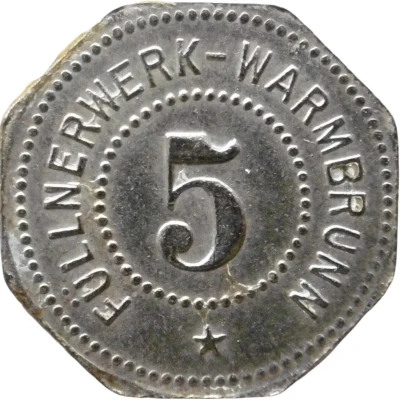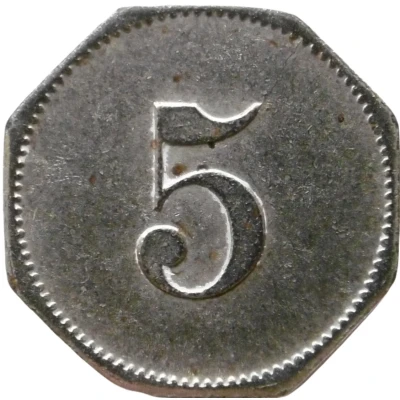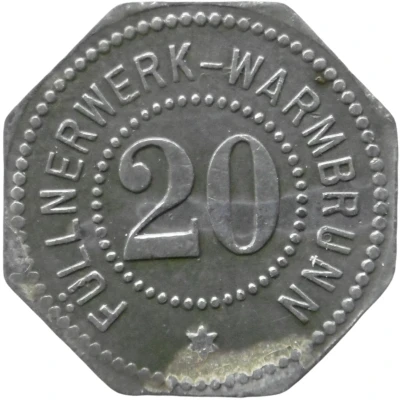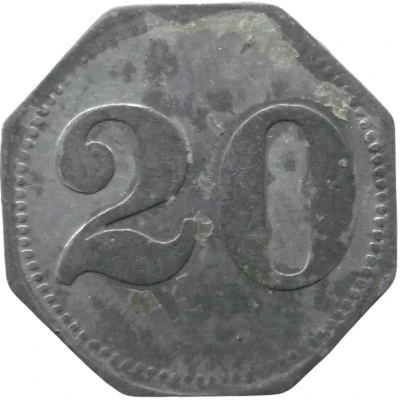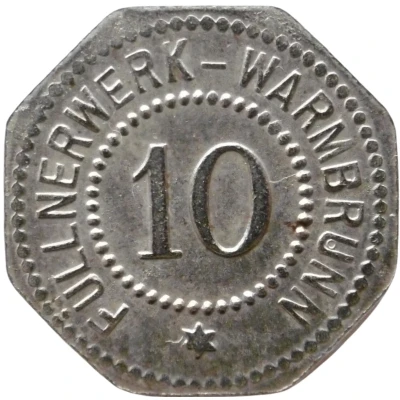
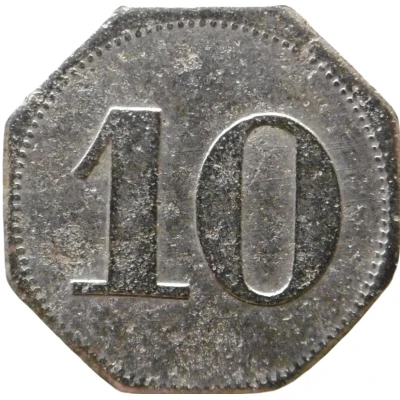

© Willem63 (CC BY-NC-SA)
10 Pfennigs - Warmbrunn (Füllnerwerk) ND
| Iron | 2.4 g | 20.8 mm |
| Issuer | Municipality of Warmbrunn (Silesia) (Prussian province of Silesia) |
|---|---|
| Type | Standard circulation coin |
| Value | 10 Pfennigs (10 Pfennige) (0.10) |
| Currency | Mark (1914-1924) |
| Composition | Iron |
| Weight | 2.4 g |
| Diameter | 20.8 mm |
| Thickness | 1.1 mm |
| Shape | Octagonal (8-sided) |
| Technique | Milled |
| Orientation | Medal alignment ↑↑ |
| Demonetized | Yes |
| Updated | 2024-10-04 |
| Numista | N#295934 |
|---|---|
| Rarity index | 97% |
Reverse
Pearl rim, with denomination centered
Script: Latin
Lettering: 10
Edge
Plain
Comment
Menzel: BBBFa: Maschinenfabrik
Interesting fact
One interesting fact about this coin is that it was minted during a time of economic turmoil in Germany. The 10 Pfennigs coin was introduced in 1923, during the hyperinflation period that followed World War I, when the value of the German mark had dropped significantly. The coin was made of iron, which was a cheaper alternative to other metals, and it weighed only 2.4 grams, making it a lightweight and portable option for everyday transactions. Despite its small size and value, the coin played an important role in the economy of the time, helping people to purchase essential goods and services.
